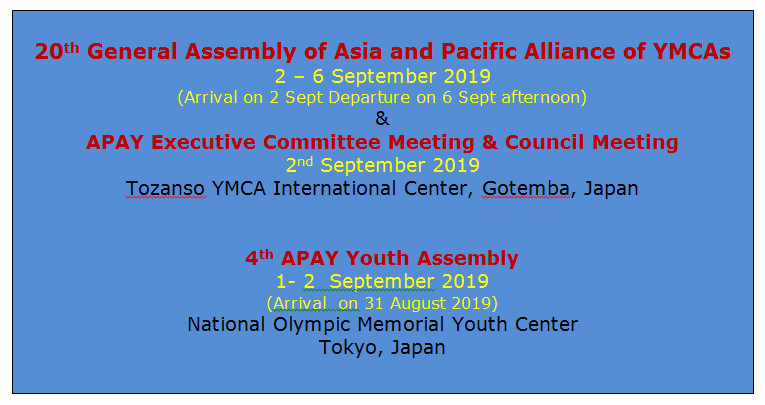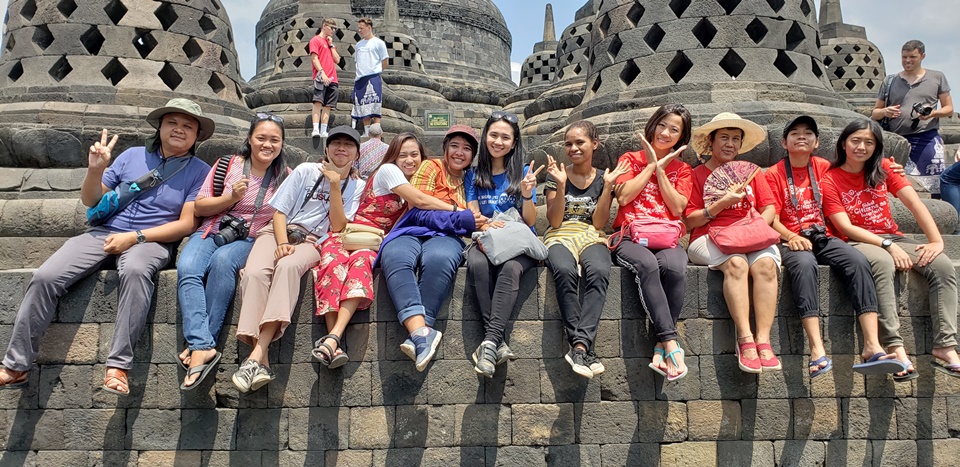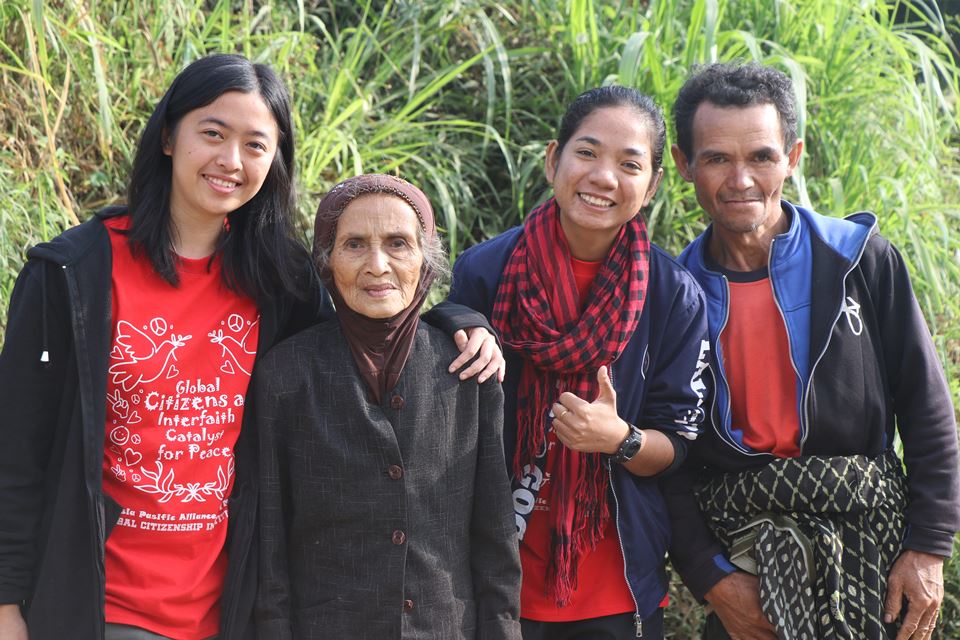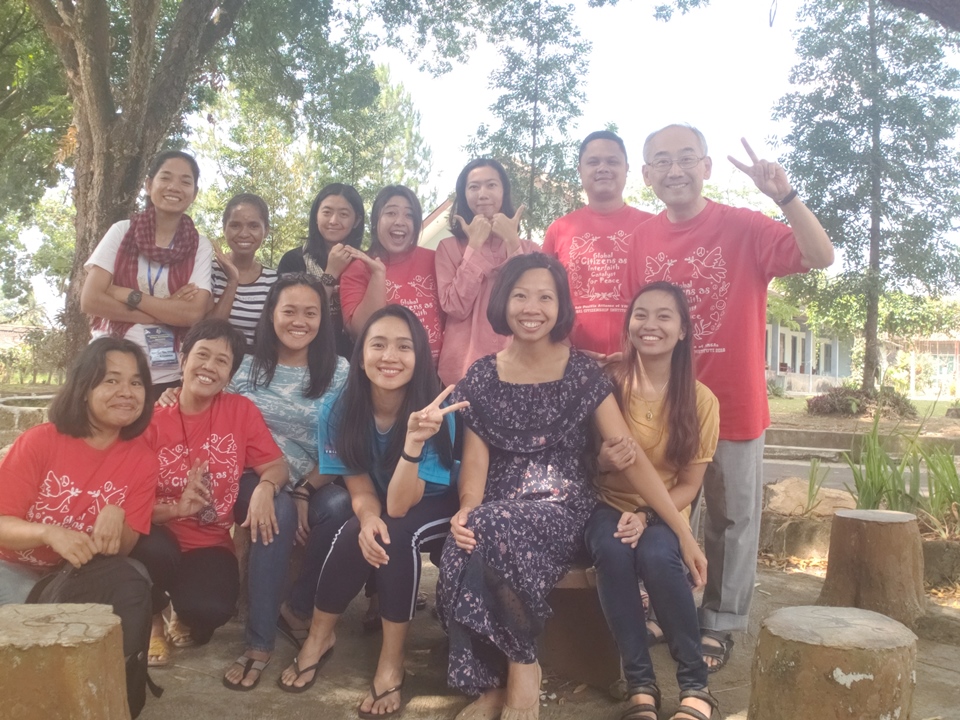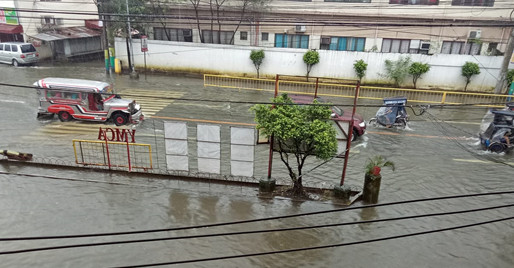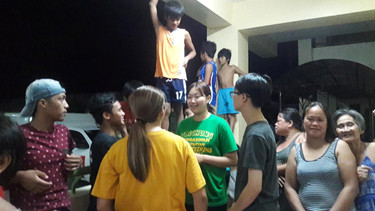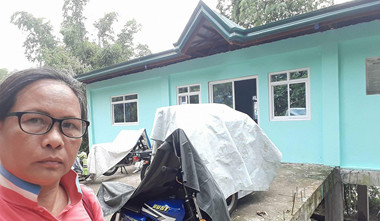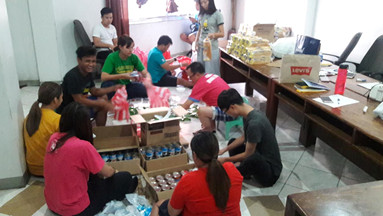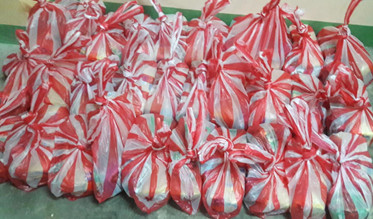↑Monthly eNewsletter of the Asia and Pacific Alliance of YMCAs
| This email contains graphics, so if you don't see them, view it in your browser. | |||||||||||||||||||||||||||||||||||||||||||||||||||||||
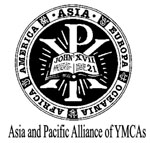  |
|||||||||||||||||||||||||||||||||||||||||||||||||||||||
SITUATION Dagupan City where YMCA of Pangasinan is situated was hit by floods two times -- in July and August. Other towns also affected are Calasaio, Mangaldan, Sta. Barbara and Binmaley. About 1,000 families and estimated 2,000 individuals were affected emotionally, physically and spiritually. Some families are still not able to go back home because of the continuing rain and if it is high tide, waters will again flow up to 1 foot high. They stayed in the evacuation center provided by the government. RATIONALE Service is part of YMCA’s objectives. This is a very rare opportunity for our members to render or extend our hands to all in need of our service. And as the needs arise we need to strive harder to give the right services needed by the people and to strengthen our capacity to reach out and create more space for the community, especially to the young people. We need to enliven their spirits and their morale as victims of calamities. At the beginning this was made possible because of the increasing concerns of our members, especially our Board of Trustees and staff, and our local and international partners. The YMCA of Pangasinan strengthened its collaboration, as a member of the Federation of YMCAs in the Philippines, and also thru the Global Alternative Tourism Network (GATN), for immediate responses and actions towards disasters and natural calamities. Thus, Disaster Relief and Management Program was activated and implemented as our quick response and continuing service to the affected lives. The DRMP include:
CONCLUSION If the Pangasinan YMCA continued to be one of the most active organizations in the province today, it is because its leaders and members have relentlessly worked hard for it since it was founded 92 years ago. Pangasinan YMCA defied all the odds and, except perhaps during the war, it never slowed down in extending its services to those in need. It has become sturdier and stronger after surviving the test of time. It continues to renew its commitment to fulfill its enduring purpose of developing in an individual a well-balanced Christian life and Christian mission, as well as to promote unity among peoples of all faiths. Thank you to the ceaseless stream of supporters, individuals and organizations for helping to overcome the flood, including the following: YMCA of the Philippines, YMCA of Baguio, YMCA of Cagayan De Oro, YMCA of Manila, YMCA of Makati, YMCA of San Pablo, YMCA of Pangasinan Scholars, YMCA Members, Friends and Volunteers And thank you to our friends and partners through the GATN program : YMCA of Singapore and Nanyang Technological University students - their donations and gifts of love to our partner communities. The community centers which were built during their camp – the Community Learning Center and Multi-Purpose Hall – were all used as temporary shelters for the affected families. And also the volunteers and interns form the YMCA of Saitama (Japan), YMCA of Taichung (Taiwan), YMCA of Anyang (Korea), Raonatti volunteers of Korea YMCA.
For now, YMCA of Pangasinan may only be providing temporary dwellings for transients through its hostel facilities. There are still many things to be done for all those affected by the typhoon, all of which needed a lot of funding. With the collective efforts of our generous Y`ers and partners, Pangasinan YMCA will overcome all adversities - as it has done for decades now. Good Action Towards Natural Calamities - our immediate response. - Juanito C. Bacani, Jr, General Secretary of Pangasinan YMCA
Thematic Workshop in Timor Leste on Human Rights:
|
|||||||||||||||||||||||||||||||||||||||||||||||||||||||
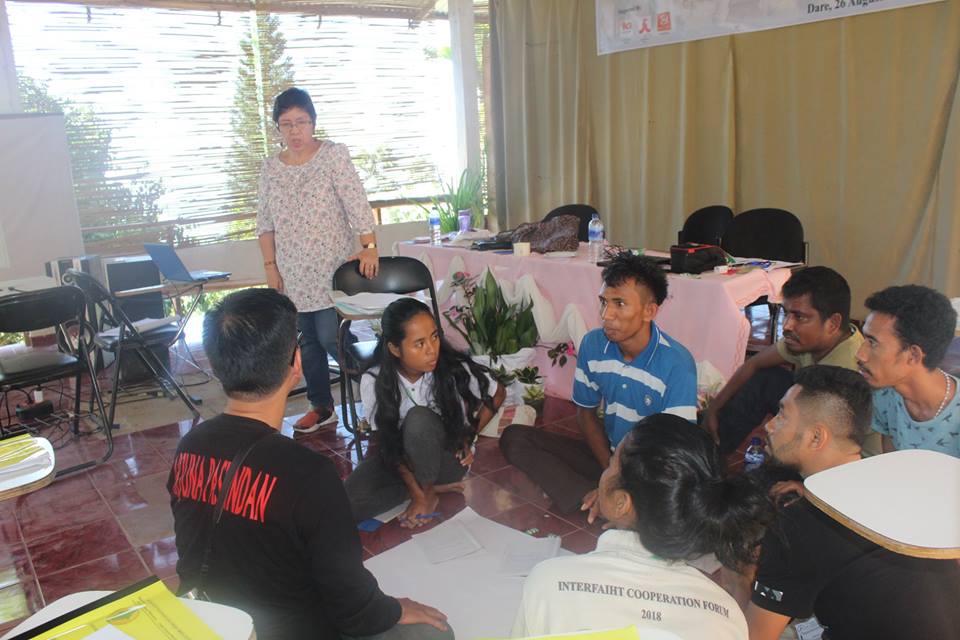 |
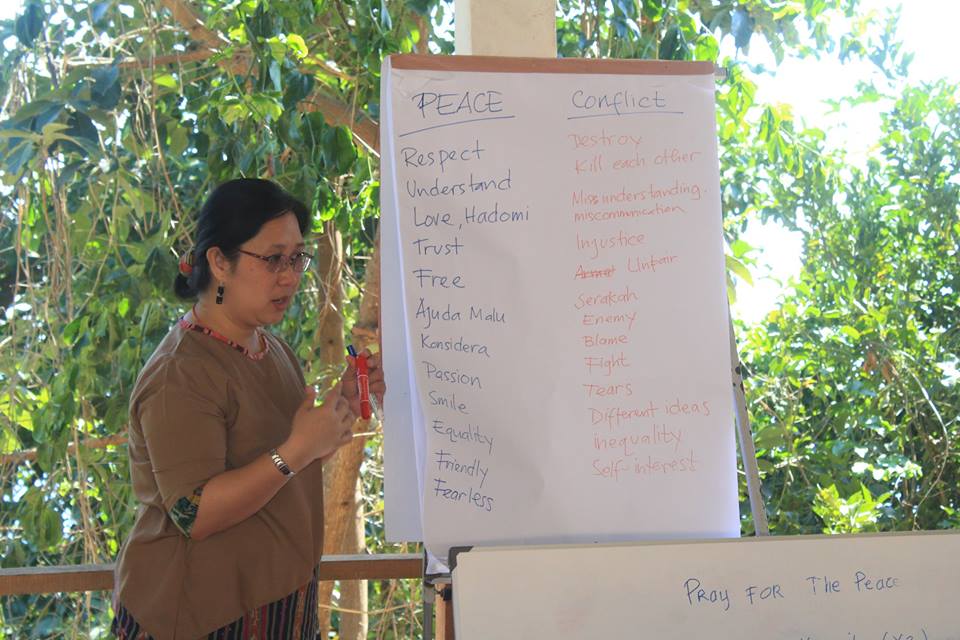 |
| ↑ Workshop in Conflict Mapping | ↑ Workshop on Gender Equality and Peacebuilding |
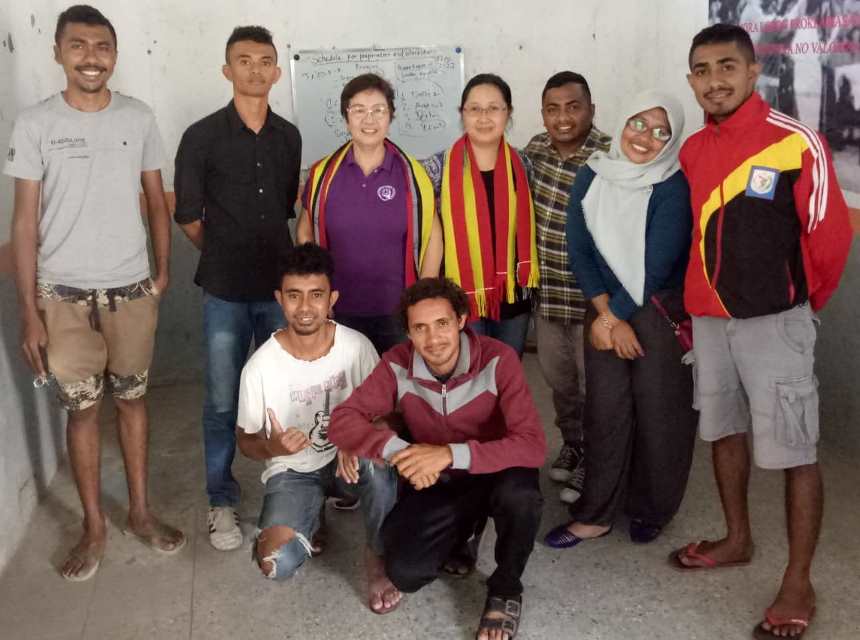 |
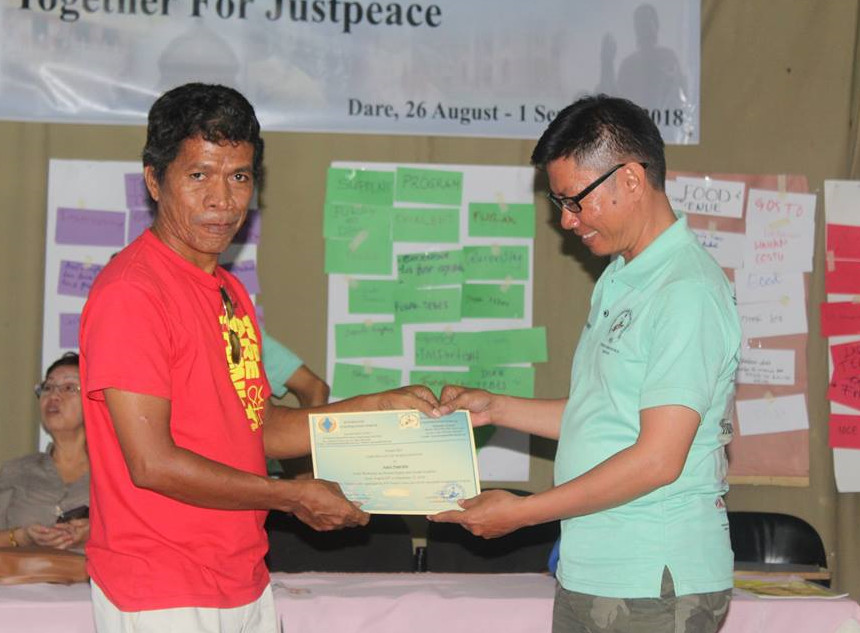 |
| ↑ The Core officers of the ICF-Timor Leste Forum | ↑ NGS Antonio da Silva handing the Certificate of Participation to Agus Nugraha |
~ Muriel Orevillo-Montenegro, Program Coordinator, ICF
Guangzhou YMCA Youths participate at Mini School of Peace
One of the main goals of Interfaith Cooperation Forum is to promote an interfaith justpeace movement in the Asia region by providing an opportunity for young people from different faith backgrounds, nationalities and especially those who come from the conflict area to come together to explore different diversities, and sometimes step out of their comfort zones in order to relearn and welcome new ideas.
In collaboration with Guangzhou YMCA, through our School of Peace alumni from 2015 Ms. Yolanda, the ICF organized a week-long mini SOP from August 12th to 20th for 12 Chinese youth including two volunteer staff from Cambodia YMCA during their summer camp with the theme “Relationship with Peace” This was held at Meta Karuna, a Jesuit Retreat Center, at Siem Reap, Cambodia.
The group spent 5 days in community exposure with Cambodia YMCA in Phnom Penh visiting the historical place S21 where they learned a very painful experience of Cambodian people in the past during Khmer rouge, visiting the slum to get a picture of what is poverty, and then went for home stay in Kampongthom Province where they helped with construction for the poor in the rural area. Following this they came to Siem Reap to visiting Angkor Wat and spend a week time joining our program.
The Mini SOP started by them sharing their experiences for the first time in Cambodia. The group come up with many questions in their mind relating to the life of Cambodian people such as: What is the role of government and NGO to provide good education to the poor? What is the affect from the history into present time for Cambodia? What is the government’s responsibility to combat poverty? What is the crying need for Cambodia?
With their curiosity and critical thought, Max Ediger the ICF former Coordinator now helped serve as resource person during this Mini SOP. He started the sharing with the session on “Pedagogy of Education-Paulo Freire” by looking at the goal of education as the problem-solving approach rather than defining the right or wrong answer. Education must reflect and involve marginalized issues specially to help find a way to focus on experiences of the students, and use many critical questions for them to educate themselves and find their own solutions. “Education is not to prepare for future life, education is a life itself” (Dewey).
The following day Mr. Hem Sopharak, Program Officer of Interfaith Cooperation Forum also shared a session on “Identity and Conflict” looking at culture and how it influences our way of life and thought. Understanding what is our multiple identities and how do they contribute to conflict in the society through identifying our own stereotypes and prejudices. Learn to feel uncomfortable, a willingness to take the first step to cross barriers, make mistakes, to ask important questions and a willingness to be changed. “In order to Learn first we must Unlearn so that we can Relearn”.
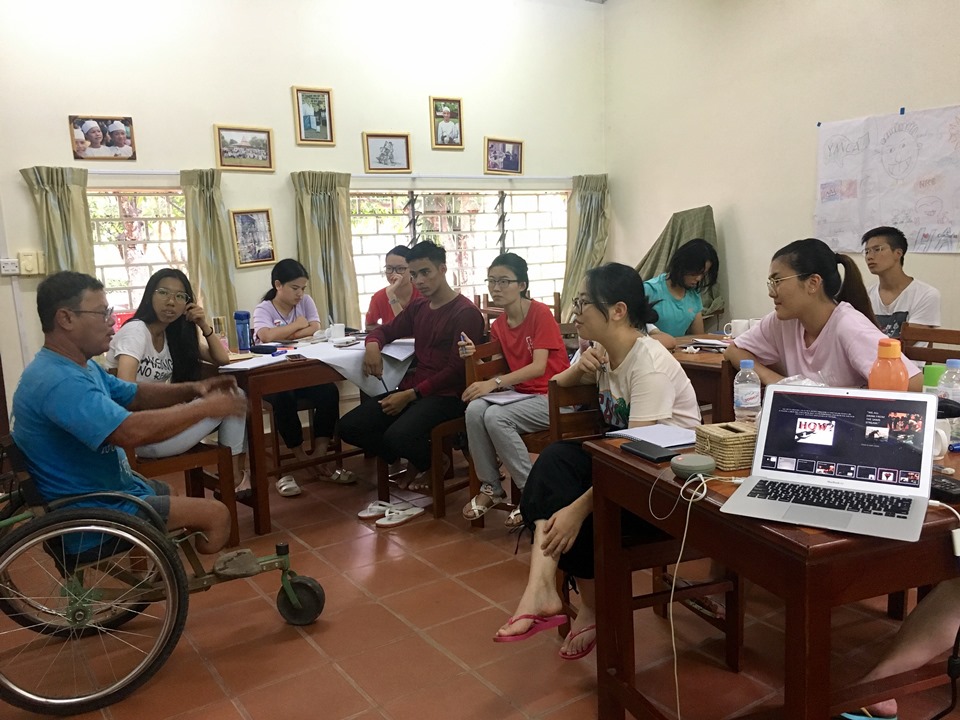 |
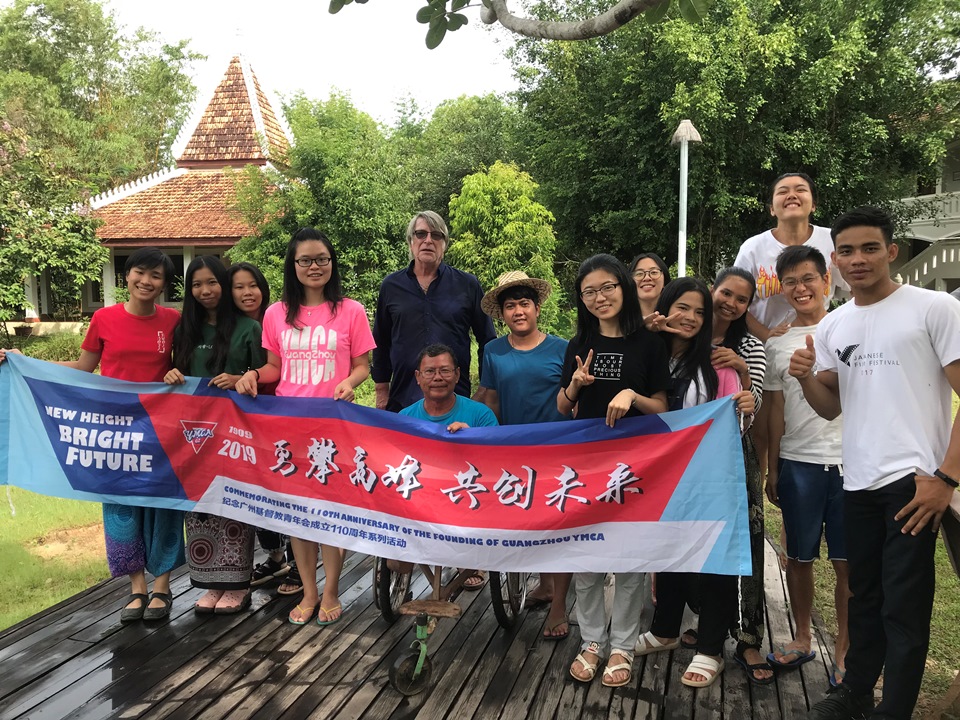 |
| ↑ Mr. Reth, staff of Jesuit Refugee Service sharing about the issue of landmine and disable people | ↑ Group photo with Mr. Reth |
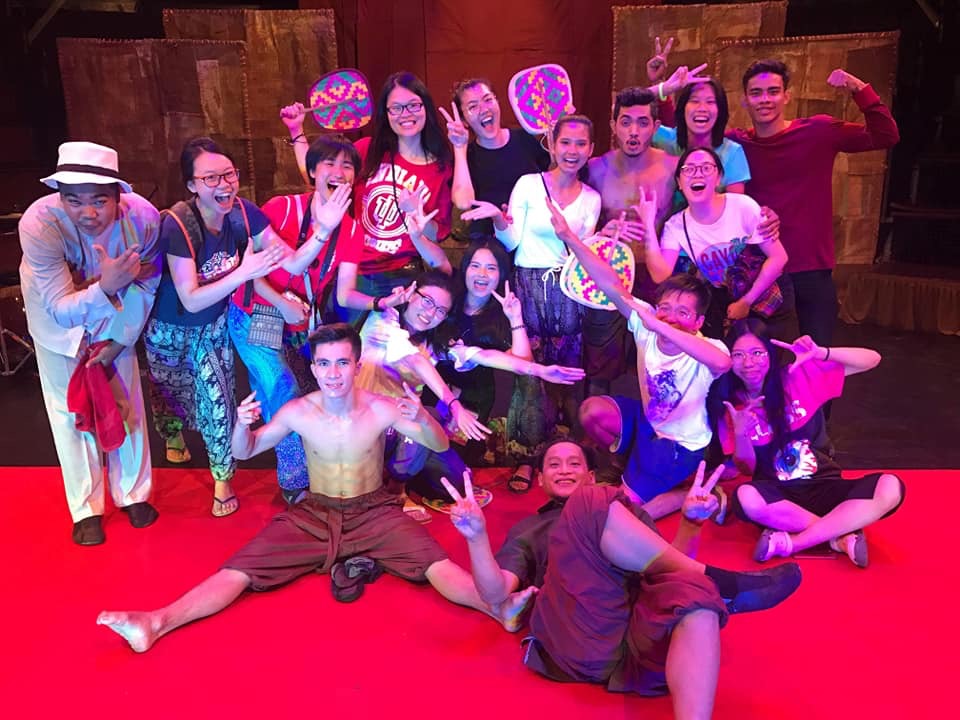 |
|
| ↑ The group vissiting Cambodian Cirsus where they trained the marginalized children to be a professional performer for social change | |
Sister Denise and Mr. Reth the founder of Jesuit and Refugee service in Cambodia also spent time sharing with us about the issues of refugees in South East Asia and the current situation of refugees around the world. They also shared the story of the struggle of Cambodian people combating land mines and cluster bombs in Cambodia almost 40 years after the civil war ended. The group also spend time reflecting “What are the results of War?” then we visited the war museum in Siem Reap hearing more information, how cold war after world war II has influenced a small country like Cambodia to take part until we had our own internal conflict during Khmer Rouge and who was behind the suffering of the people, who supported the brutal violence in order to keep the killing going on almost 3 years.
For the present situation of Cambodia, our friends also had a chance to meet with Mr. Seng Phalla alumni from 2017 SOP also a member of Cambodia National Forum, who works very closely with Women empowerment group and Labor movement, sharing about the economic structure and development in Cambodia for the past 10 years, how does it help improve the life of marginalized people but at the same time how does it create problems to them economically and sociality.
Even though one week sharing is very short process to cover many important topics, but our aim is providing a safe space where young people freely express their concerns about the injustice issues and we also hope that our friends have learned and could take some of the useful information to apply in their daily life and use their critical thinking to reflect on the society they live in and find their role as young people to engage with building up Justpeace Society. Our job is to “Comfort the afflicted and afflict the Comfortable”
~ Hem Sopharak, Program Officer, ICF
Challenges for the Growth of Social Economy Institutions
Social Economy is considered as an alternative economic system today, when the market economy has completely failed to bring economic emancipation for the marginal people in both developing and developed world. The outcome from the Bretton Wood institutions, established in the last century after the WW2, never brought any good news for the mass people of the countries of the global south. The market economy dwelt on the values of profitability only, which made the world divided between the rich and the poor and the gap ever widening.
In such a situation, there was a need for an alternative way to nurture the economy, based on the values of cooperation, mutual respect, social entrepreneurship and social welfare. The social economy, is termed as ‘third sector’ and ‘non-profit sector’, this usually refers to the various organizations between the state and the market, fulfilling both economic and social welfare objectives.
It is a wonderful co-incident that the YMCA movement and the first cooperative movement were established same year 1844 in England, one in London and the other in Rochdale. Both the movements were formed as an alternative response to the counter the drawbacks of the Industrial Revolution.
The YMCA being a social organization, can also be termed as a social enterprise. This is because, the YMCAs especially in Asia and some other parts of the world have been resorting more on social enterprises for their sustainability as well as fulfilling their social responsibilities. In addition, these social enterprises also channeled resources for the YMCA’s social oriented programs for the communities. The YMCAs are popularly known for hospitality industry and healthy living programs, have developed a host of hotels, resorts, campsites, swimming pools, gyms and other health programs. Similarly, the YMCAs also run a good number of educational institutions likes, schools and colleges. A large number of YMCAs in the developing world are involved in micro-finance activities through forming self-help groups. All these social ventures are involved in service for the society but also bring surplus finances for the YMCAs for reinvestment for the common good of the communities. As such the YMCAs can undoubtedly be categorized as social enterprises.
The YMCAs are working towards youth empowerment, and creating employment for them is one of the focus areas of YMCA work. The Asia and Pacific YMCA accepted ‘social and solidarity economy’ as one of the main thrust areas for the following quadrennial plans at the 18th General Assembly in 2011 and at the 19th General Assembly in 2015. Hence, the first APAY Regional Workshop on Social Economy was held in Seoul, Korea from 27th to 30th June 2013. At this conference the YMCAs were encouraged to initiate small and medium scale social enterprises to promote organic farming, alternative tourism, fair trade, handicraft productions, online-stores etc, underscoring the need of creating job employment for the youths through these initiatives.
A vast number of YMCAs are now involved in social entrepreneurship programs. The Bridges Project of Victoria YMCA of Australia is a half way home empowering youths for job creation after the completion of their terms in the prisons. Another example is the Project PRISM, where the YMCAs aim to train thousands of kids to know the art of swimming, in order to avoid the danger of drowning, a common threat for kids in Australia. The Chinese YMCA of Hong Kong trains youths to run café and bakery and also trains them to run balloon-art enterprises, who supply balloon decorations to social and corporate events. The Chiang Mai YMCA of Thailand runs social enterprises in handicraft production, where the majority of the products are exported to foreign markets. The Batticaloa YMCA of Sri Lanka is supporting thousands of borrowers for self-employment through their micro-finance operations. The Korean YMCAs are involved with cooperatives and had been instrumental to promote them throughout the country. This is how the YMCAs, especially in the Asia and Pacific are increasingly engaging themselves in social enterprises with an objective to support people for their economic emancipation.
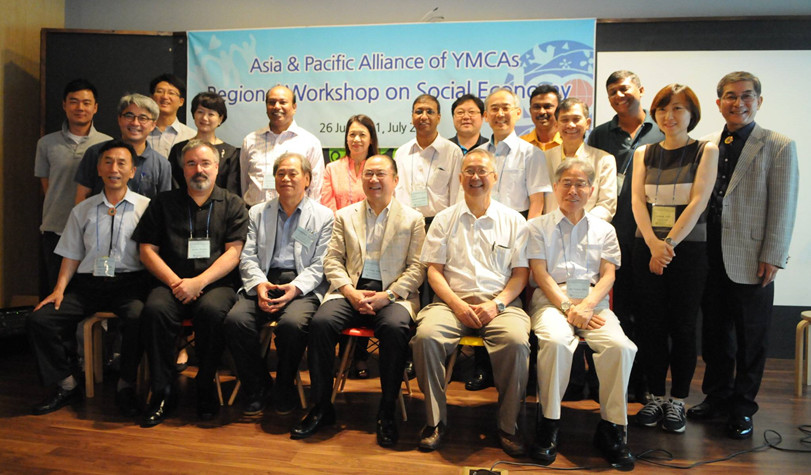 |
| ↑ The Participants of the APAY Conference of Social Economy held during 27th-30th June, 2013 at Seoul, Korea |
As described in the beginning of this essay, social economy could be considered as the ‘third sector’ for economic emancipation of the people on the onslaught of the capitalistic hegemony. This could be the solution, however there are a host of hindrances which poses as an impediment for the growth of social enterprises.
There is a sort of ignorance about the concept and understanding of social economy enterprises. The youths do not know that social enterprises can be a pivotal vehicle to create employment for them. The governments as well as the civil societies movements need to work towards promoting social economy enterprises.
Investments are not so easily available for the social enterprises. Young people inspired in the spirit of social entrepreneurship, finds no easy way to get investments for their social ventures. Usually, they come from impoverished families who do not have much capital of their own, nor can they get loans from the banks, primarily, because in most of the countries there is no legal framework for social enterprises. The governments of Hong Kong, Singapore, Korea are pioneers in enacting laws for regulation of social enterprises, moreover, to promote such social endeavors, they have set aside government funds for investing in social enterprises. Countries need to work in formulating legislations for social enterprises and liberal tax regulations for them. In the absence of any legislation, the social enterprises cannot enjoy tax benefits, which are commonly expected for the growth of social enterprises in a country.
There is lack of role-models in this area. There are not adequate business models on social enterprises, which could inspire youth to get involved in these ventures. Adequate trainings for social entrepreneurs are pre-requisite for a healthy growth of social enterprises. Social movements can initiate programs to train youths and getting them engaged in social enterprises, and providing information about financial resources and technical knowhow.
It is understood that Social Economy is the answer to bring down disparity in the world and economic emancipation of the marginal communities. All it requires, is the concerted efforts of our civil society organizations to effectively advocate for the promotion of social economy and involve the people to participate. There are a lot of good stories in the Global North that these initiatives have changed the fate of common people, and this too will happen in our Global South in the days to come, if we can effectively promote social economy and bring end to the vagaries of neo-liberalism.
~ Duncan Chowdhury, Executive Secretary
Newly Elected President of NCY of Japan
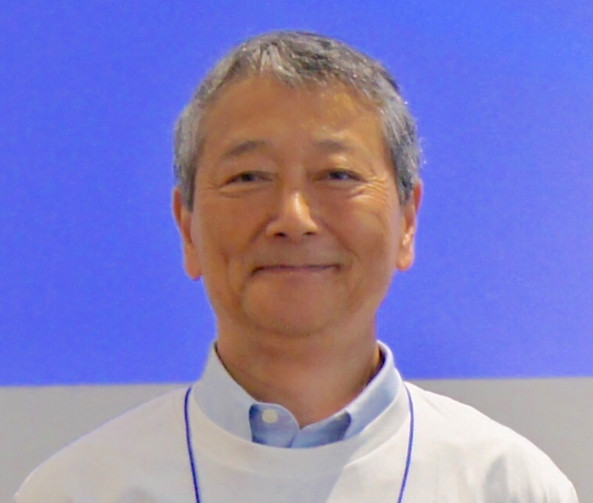 At the 7th Annual General Meeting of the National Council of YMCAs of Japan held at Tozanso, Mr. Mitsuo Oikawa was appointed as the new president of National Council of YMCAs of Japan.
At the 7th Annual General Meeting of the National Council of YMCAs of Japan held at Tozanso, Mr. Mitsuo Oikawa was appointed as the new president of National Council of YMCAs of Japan.
Mr. Oikawa was brought up in YMCA family, and his experience at the Boys Camp at Tokyo YMCA Camp Nojiri as a member and a counselor has developed his core value and characters during his adolescent years.
Working as a business person, he spent 6 years in New York and served as a volunteer for the Tokyo-Frost Valley YMCA partnership which provides Japanese children and families in New York area with Out-door and Cultural programs at Frost Valley YMCA in New York State, USA.
In 1998, Mr. Oikawa started to serve Tokyo YMCA as a member of Board of Councilors and since 2004 he served the National Council of YMCAs of Japan as a member of Board of Councilors and Directors.
We hope and pray that the Japan YMCAs will strongly move forward with the leadership of Mr. Mitsuo Oikawa towards our new-branding vision "Positive Net".
Matt Roberts elected President of New Zealand YMCA
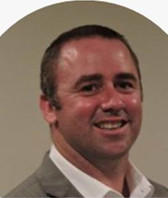 Matt Roberts has been elected as the President of the National Council of YMCAs of New Zealand on 26 May 2018. He is a performance-oriented management professional with a proven track record in leadership, business transformation, enhancing service levels, managing business and information systems risk, improving workflow processes and managing profitable relationships.
Matt Roberts has been elected as the President of the National Council of YMCAs of New Zealand on 26 May 2018. He is a performance-oriented management professional with a proven track record in leadership, business transformation, enhancing service levels, managing business and information systems risk, improving workflow processes and managing profitable relationships.
Currently he is the Vice President of YMCA Auckland and Immediate Past Chair of Diabetes Auckland. He is the former President of Titirangi Tennis and Squash Club and Auckland Waterski Club.
We wish and pray that the YMCA of New Zealand will progress further under his dynamic leadership.




